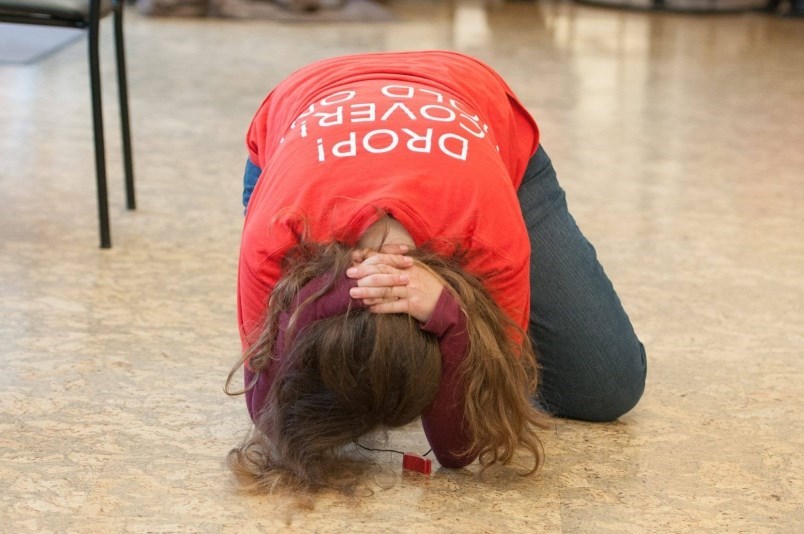A megathrust earthquake could shatter Metro Vancouver infrastructure, prompting cities across B.C. to advocate for preparedness and safety plans for residents, schools and businesses.
In Port Coquitlam, residents are encouraged to join in the largest earthquake drill in B.C. history on Thursday, Oct. 20 at 10:20 a.m.
That's when the Great British Columbia ShakeOut takes place.
Organized by the BC Earthquake Alliance Society, ShakeOutBC provides residents with an opportunity to practice the ‘Drop, Cover and Hold On’ earthquake protocol and also make sure they are prepared for an earthquake at home, school, office and on-the-road.
Each year, about 5,000 earthquakes are recorded in Canada — many of these in the seismically active region around B.C. Most are small, but at least nine earthquakes in or near Canada have registered a magnitude of seven or more in the past century.
In Prince George, for example, a "lightly felt" earthquake of 3.4 magnitude was recorded in September, 2022.
Today, the City of Port Coquitlam is encouraging all residents to hold drills in their homes, schools or workplaces at 10:20 a.m.
Here's how to participate:
- Visit shakeoutbc.ca to register as a participant and download resources (including sound effects to play during the drill and emergency preparation information).
- Encourage your family, neighbours and colleagues to take part in the drill.
- At 10:20 a.m. on Oct. 20, practice the “Drop, Cover and Hold On" protocol:
- Drop to the ground;
- Take cover by getting under a desk/table (or cover your face and head with your arms and crouch in an inside corner of the building); and
- Hold on for 60 seconds. During this time, look around and imagine what would happen during an earthquake. What could fall down on you or be damaged? Make notes of tasks to conduct after the drill, (e.g. anchor large furniture pieces).
- Afterwards, practice what you will do after the shaking stops.
How to get prepared for an earthquake:
- Do a ‘hazard hunt’ for items that might fall during earthquakes, and secure them.
- Create a personal or family disaster plan (visit gov.bc.ca/preparedbc for information).
- Organize or refresh your emergency supply kits. Consider that you may not be home when an earthquake occurs, and that you may need to be self-sufficient for at least 72 hours afterwards.
- Identify and correct any issues in your home’s structure.
- Visit shakeoutbc.ca for more actions.
Individuals who are prepared for a major disaster will suffer fewer injuries and less property damage and be better equipped to care for themselves afterwards as authorities work to restore services.
Visit the Port Coquitlam's s website for more emergency preparedness tips, resources and information at portcoquitlam.ca/ep.





